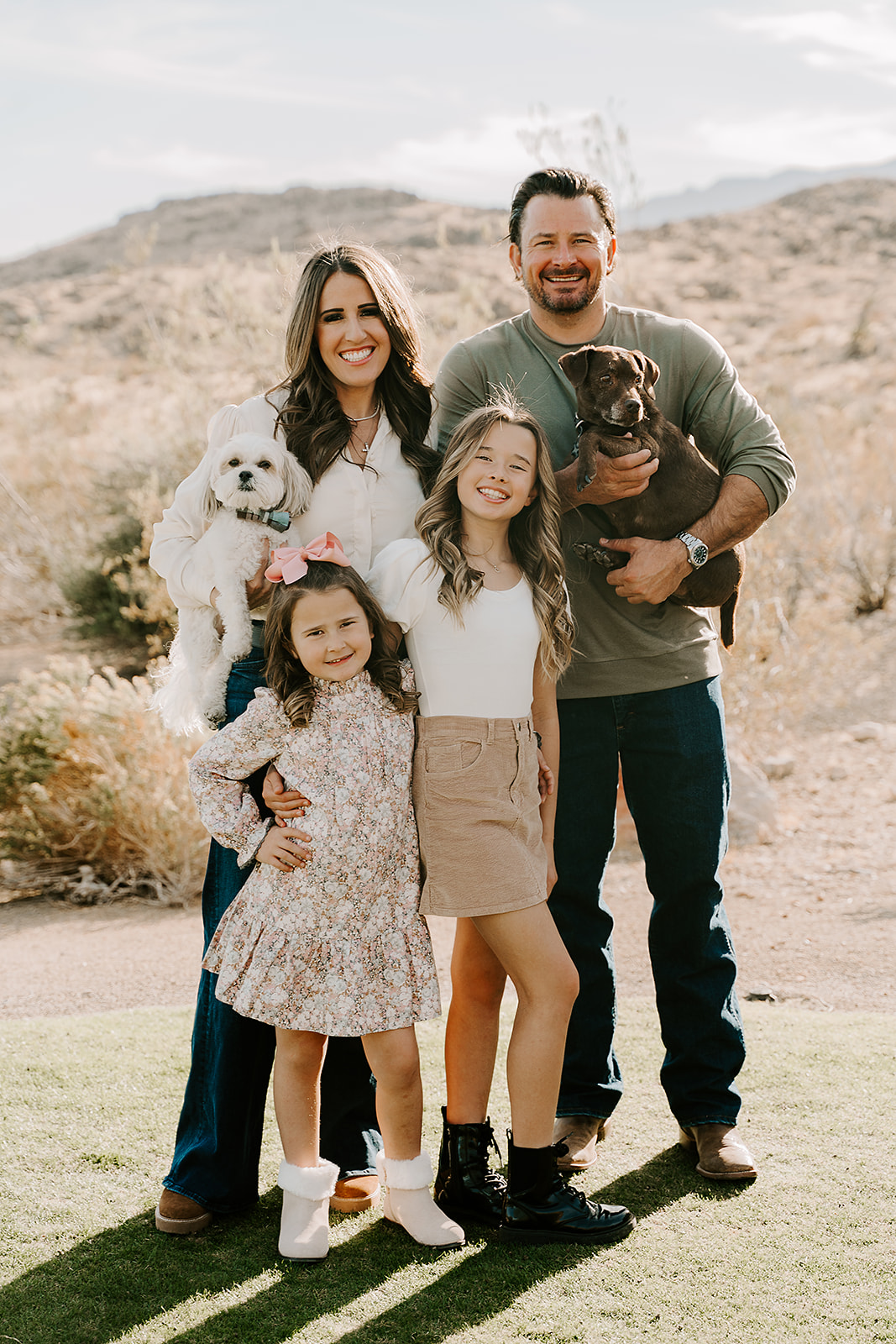Meet the Habibi Bear: Your Heart Dog, Soul friend & Anam Cara ™
Where Magic Meets Devotion – The Habibi Bear Awaits
“The hypoallergenic breed designed for deep connection – paired with a program that helps you cultivate it”

Moyen, Mini, teacup, and perfectly sized to be by your side—wherever life takes you.
A Soul Connection, by Design
The Anam Cara Bond—It’s What Habibi Bears Were Made For. At Habibi Bears, we didn’t just set out to breed a dog. We created a companion with one sacred goal in mind: To become your Anam Cara—your soul friend. Rooted in ancient Celtic wisdom, Anam Cara means a bond so deep, it transcends words. It’s the kind of connection where two souls meet in complete trust, presence, and unconditional love. Every aspect of our program—from thoughtful breeding to intentional puppy curriculum—is designed to nurture this connection. Our puppies are emotionally attuned, intuitive, and ready to become something truly extraordinary in your life: A partner. A mirror. A best friend. A safe place. This is the heart of the Habibi Bear legacy. This is who they are.
When you welcome a Habibi Bear into your life, you’re not just adding a pet to your family. You’re answering the call to something deeper. You’re meeting the companion you were always meant to find. Habibi Bears aren’t just raised for this bond— They were created for it.
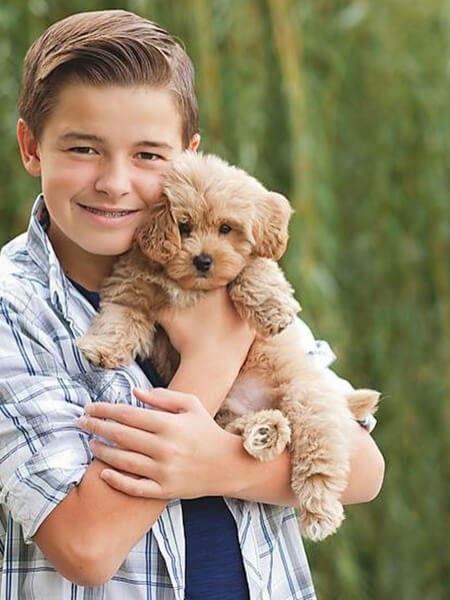
What is a Habibi Bear?
The Habibi Bear was born from a deep calling—a desire to create a companion unlike any other. These intuitive, empathic dogs are not just pets; they are partners in your journey, attuned to your energy, emotions, and spirit.
The Habibi Bear is here to walk beside you, not as a tool to fix you, or as medical equipment, but as a willing and loving partner, an Anam Cara- Soul Friend.
Learn more about our story.

Available Puppies
I plan litters each season and accept a few reservations for our waitlist. My process is deeply personal—I take time to know each family, as connection is key to a perfect match. Over the years, I’ve honed my intuitive approach, trusting the natural flow over strict timelines. I listen to my puppies, honor their voices, and hand-select those with standout qualities to further develop their gifts. These special pups become PupStart Puppies. If you feel drawn to a puppy, reach out—you may be who we were waiting for-something truly magical may be waiting on the other side.
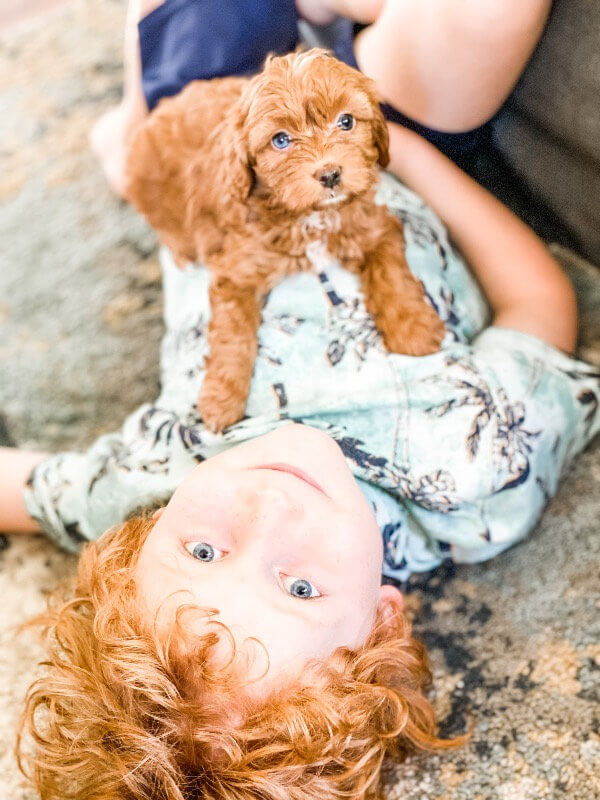
Our Adoption Process
My process is deeply personal—this isn’t just about placing a puppy, it’s about creating a soul-level match between each family and their perfect kindred spirit. Unlike mainstream breeders, I see this as more than a transaction; it’s the formation of a partnership and deeply impactful. Every match is intuitively guided and profoundly accurate, ensuring that each Habibi Bear finds the home where they truly belong. Learn more about what’s included with your Habibi Bear and how our selection and delivery process works!
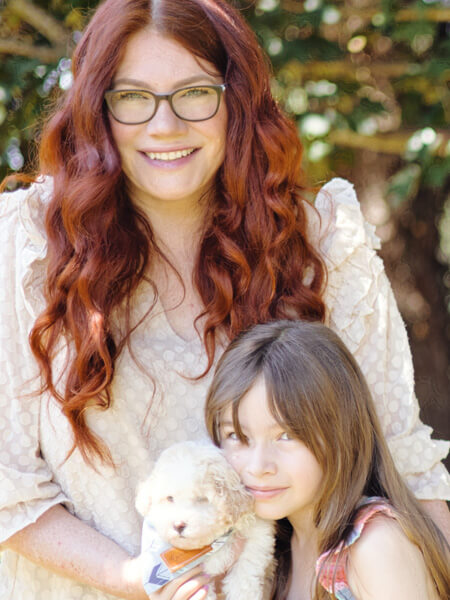
Why Choose Habibi Bears?
Our program was born from a deep love of connection—creating not just companions, but soulful partners in life. Time and again, we hear stories of Habibi Bears forging unbreakable bonds, choosing to walk beside their humans in a way that feels almost magical. These dogs are for those who honor their spirit and embrace the journey of partnership. Rooted in relationship and connection—not obedience or control. our philosophy nurtures a bond like no other. If you’re seeking a true heart dog, a lifelong companion who understands you beyond words, discover the magic of the Habibi Bear.

Ready to Join the Family?
The best way to start the process is by filling out our puppy application. This helps us better understand what you’re looking for in a pup.
Our Mission
To Raise Perfect Hypoallergenic Family Companion Dogs
At Habibi Bears, we’ve dedicated over 35 years to creating the ultimate family companion—intelligent, intuitive, and deeply connected to their humans. Through careful breeding and strategic outcrossing, we’ve developed a breed designed for modern families—hypoallergenic, easygoing, and bursting with love.
Freed from outdated breed restrictions, we prioritize health, temperament, and genetic diversity, ensuring our Habibi Bears thrive in family life. Our mission is simple: to raise dogs that seamlessly become part of your family—offering unwavering companionship and joy to those dedicated to nurturing their bond.
Discover the Habibi Bear difference—a breed developed for today’s world, where love and connection take center stage.


Not Sure Where to Start?
We know it can be overwhelming getting a new puppy, you want to find the right breeder, get the right pup, and get started the right way! You’re in the right place! If you’re not sure where to start, text us and start the conversation with Julie!


Proven Temperament
For over 35 years, we’ve bred our Habibi Bears with a vision to create the perfect family companion – intelligent, empathic, and easy-keepers. We have developed a Perfect Match process to help match each puppy with the home that best suits them.

Hypoallergenic & Non-Shedding
The term “hypoallergenic” is often used to describe allergy-friendly dogs. Our Habibi Bears are non-shedding and allergy-friendly, meaning you can put away the lint roller and enjoy the snuggles!
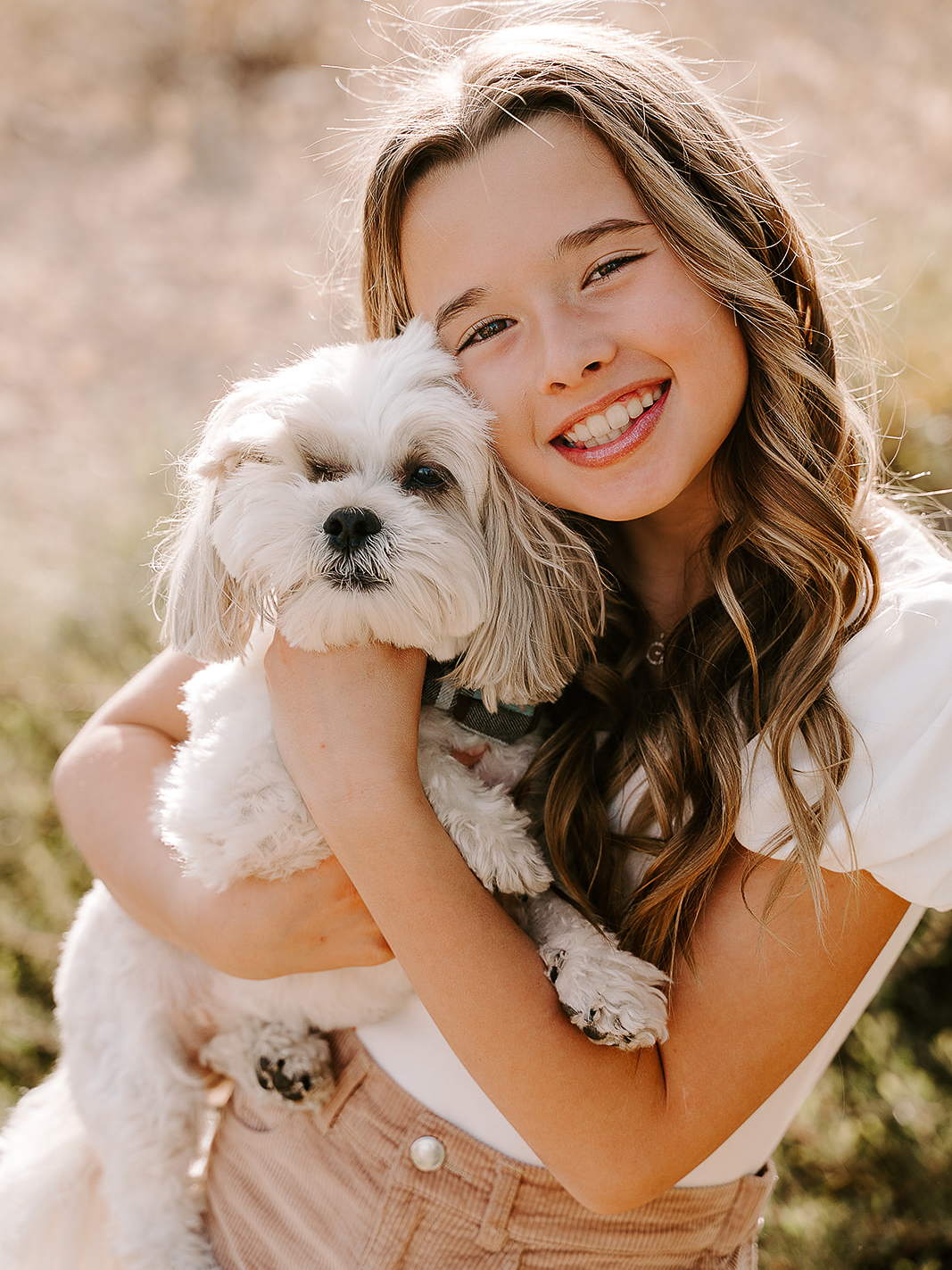
Hybrid Vigor
We develop these unique dogs through strategic outcrossing, combining beloved companion breeds that meet our genetic diversity and temperament standards. Using modern science and DNA choices, we restore genetic diversity lost to centuries of inbreeding.

Who is an Ideal Habibi Bear Owner?
Let’s be real—raising a puppy isn’t always sunshine and snuggles. There will be accidents, chewed-up shoes, and moments where you wonder if your puppy will ever learn to be quiet in the pen or potty outside. But here’s the thing—we don’t expect perfection, and neither should you.
Puppyhood is a journey, not a checklist. It’s time, patience, and shared experiences that build the strongest foundation—not flawless obedience or a perfectly behaved pup from day one. At Habibi Bears, we’re here to walk alongside you, support you through the challenges, and celebrate the wins (even the tiny ones!).
So instead of expecting perfection, embrace the journey. You and your puppy are learning and growing together, and that’s what makes this experience so special. We’ve got your back every step of the way – that’s why Julie created her course just for you, ensuring you have all the tried-and-true methods to lovingly raise your puppy the Habibi Way!
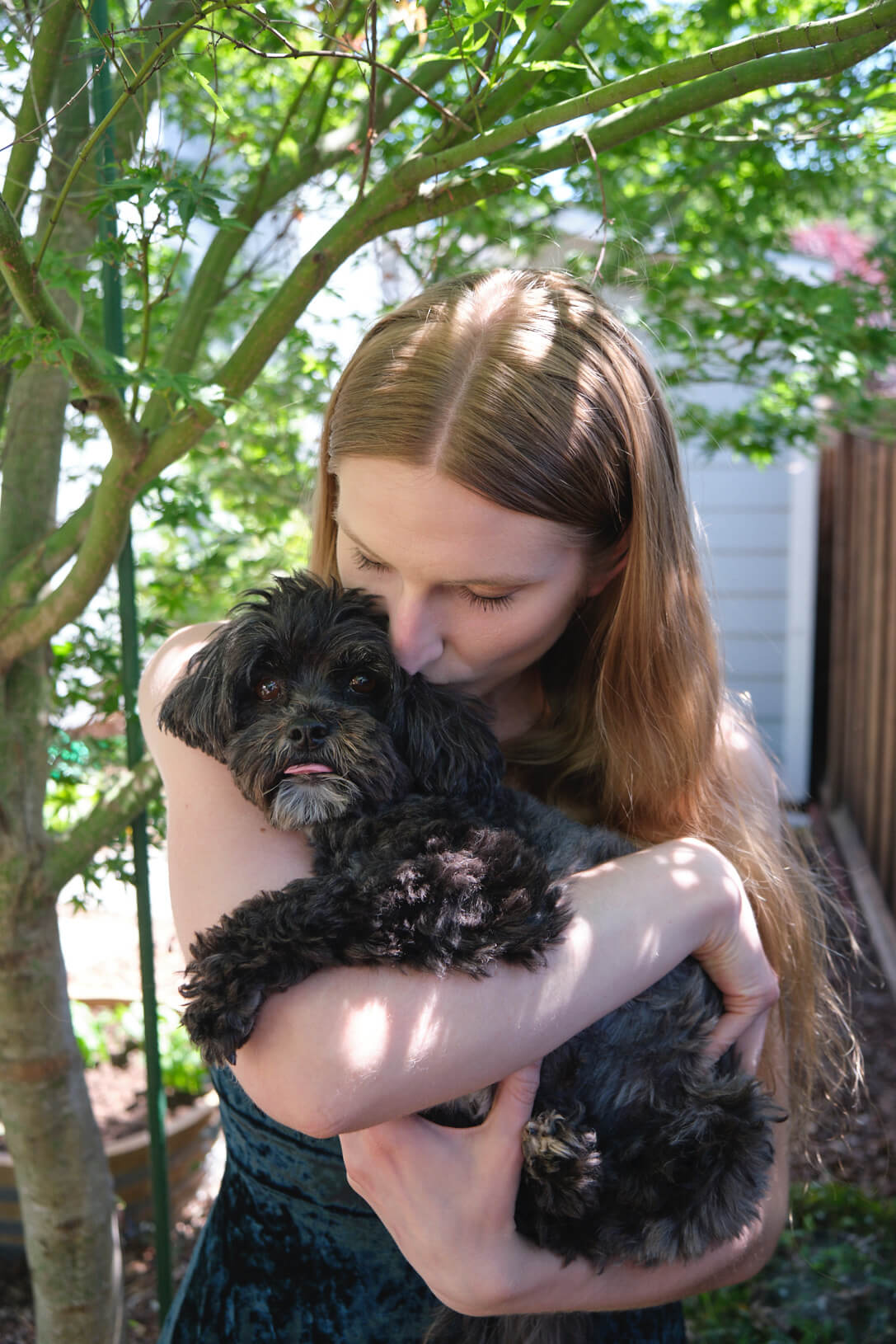
✔ Ideal Habibi Bear Owner:
✔ Emotionally Grounded & Open-Hearted – They see their puppy not as a quick fix or emotional crutch, but as a kindred spirit — an Anam Cara, a soul friend. They understand that deep healing and connection come through time, trust, and reciprocity. These families show up with emotional steadiness and a willingness to lead with compassion, offering their puppy a safe foundation to grow, explore, and thrive.
✔ Respects a Dog’s Agency & Individual Path – While many of our dogs have naturally grown into roles as therapy, service, or emotional support companions, this is never something we guarantee or impose. It’s a path that unfolds through mutual trust, deep connection, and the dog’s own readiness and choice.
Our ideal families understand that their puppy is, first and foremost, a beloved friend and companion. If their dog does go on to provide emotional support or therapeutic connection, it’s seen as a beautiful gift, not a requirement. And if the journey takes a different direction, they’re perfectly at peace — because their love for their dog isn’t based on what they do, but who they are. They celebrate the dog in front of them, and that’s what makes the bond so powerful.
✔ Prepared for the Journey – They’re not here for instant gratification — they’re here for the long haul. These families understand that raising a puppy is a journey of growth for both human and dog, and they’re willing to put in the time, patience, and energy needed to build something lasting. For them, this isn’t just about getting a dog — it’s about becoming a family.
✔ Aligned with Our Values & Philosophy – They appreciate that the Habibi Bear is not just a breed — it’s a way of life. They’re open to learning about the Habibi Method, our trauma-informed, relationship-based approach that honors a dog’s emotional world. They trust our process, follow our guidance, and respect the gentle nature of this intuitive breed.
✔Cherishes the Bonding Experience – Our ideal families embrace the early days of puppyhood—not just to witness their puppy’s growth, but to actively participate in shaping it. They understand that meeting a puppy’s needs and navigating challenges together fosters a deep, lasting connection.
Scientific studies have shown that positive interactions between dogs and their owners, such as petting and mutual gaze, can increase oxytocin levels in both, strengthening the bond and promoting trust. This mutual release of oxytocin and dopamine during shared experiences, especially overcoming challenges- reinforces the emotional connection, making the journey through puppyhood profoundly rewarding.
We encourage families to resist the temptation to bypass these formative stages. Puppyhood is a fleeting period filled with moments that, while sometimes challenging, are irreplaceable. One day, you’ll look back and cherish the nights of gentle cuddles when your pup first arrived and needed comfort, the first successful commands, and even the mischievous antics. Our dogs’ lives are beautifully short, and every shared experience contributes to a bond that lasts a lifetime.
✔ Committed to Learning & Preparation – Before their puppy comes home, they complete our Habibi Bear Raising Course – The Human’s Guide to the Dog Galaxy, to ensure a stellar start for both themselves and their new companion. They see this education as a gift — a way to understand, support, and truly connect with their dog from day one. And best of all, they know we’ll be there every step of the way.
✖ Not the Right Fit:
✖ Hoping for Instant Emotional Support or a “Turnkey” Dog – We deeply understand the desire for connection — it’s the heartbeat of everything we do. But it’s important to remember that puppies are still babies. They’re learning how to exist in the world and need consistent, grounded care before they can offer emotional support in return. If you’re in a tender season and hoping a puppy will provide immediate comfort, please know that while that bond can come, it doesn’t happen overnight. ALL puppies need someone who can meet their emotional needs first — someone steady, calm, and able to guide them as they grow into the incredible companions they’re meant to be.
Expecting a young pup to be a ready-made therapy or emotional support dog isn’t just unrealistic; it’s unfair. They require months (sometimes years) of care, training, and stability to grow into that role. A puppy needs a leader to feel safe, not the weight of someone else’s emotional needs.
✖ Viewing Dogs as Replaceable or Task-Oriented Tools – While hundreds of Habibi Bears have naturally become therapy, emotional support, or service dogs, this was never the result of force or expectation — it happened through a deep, trusting bond with their person. We celebrate these outcomes, but we never guarantee them. The most important factor in a dog’s potential to support others is the relationship they share with their human, and that connection can’t be rushed or manufactured — it must be nurtured with care.
Occasionally, we hear from people who want to “replace” a dog that didn’t succeed in training. This mindset doesn’t align with our values. Dogs are not tools or medical devices to be replaced when they don’t meet human expectations — they are sentient beings with emotions, needs, and preferences. Even in professional service training & breeding programs, up to 70% of dogs “wash out”, not because they’re flawed, but because not every dog is suited for that role. We match our puppies with families who are committed to loving their dog for who they are, not just for what they might do. When that kind of connection is the foundation, incredible things can happen — but love and acceptance always come first.
✖ Easily Overwhelmed by Puppyhood or Expecting Too Much, Too Soon – Puppies cry, have accidents, chew things, and make messes — not because they’re bad, but because they’re babies. Just like young children, they move through developmental stages that require patience, understanding, and steady guidance. They aren’t born knowing your house rules, how to walk on a leash, or how to regulate their emotions and energy. These skills come with time, consistency, and a supportive environment. If the natural ups and downs of puppyhood feel too overwhelming or disruptive, it may not be the right season for this kind of commitment. Puppies aren’t here to challenge you — they’re here to learn from you. And while the learning curve is real, those who show up ready to lead with love, teach with grace, and grow through the process often find this journey to be one of the most rewarding experiences of their lives.
✖ Belief in Harsh or Punitive Training Methods – If you subscribe to dominance-based approaches, shock collars, or punishment-style corrections, our program won’t be the right fit. We believe in relationship-based, trauma-informed guidance that nurtures trust, communication, and emotional security. Our puppies are raised in a culture of respect — and we expect their families to continue that care.
✖ Impulse Buyers or “Cute Now, Regret Later” Mindsets – Falling in love with a photo is easy. But raising a dog is a long-term commitment that requires patience, consistency, and presence. If you’re drawn to the idea of a puppy in the moment but haven’t considered how your life will look in 6 months or 6 years, we encourage you to pause. Our dogs are not products — they are living souls looking for forever families, thier people.

Why Choose Habibi Bears?
-
- Mini & Teacup Sizes – Airline Travel Ready
- Moyen Size – The Larger size for families who enjoy outdoor activites with their dog
- Adorable Teddy Bear Faces
- Perfect Family Companions & Heart Dogs
- A Puppy Training & Raising Program Comes with Every Puppy – complete with support from our team, FREE!

